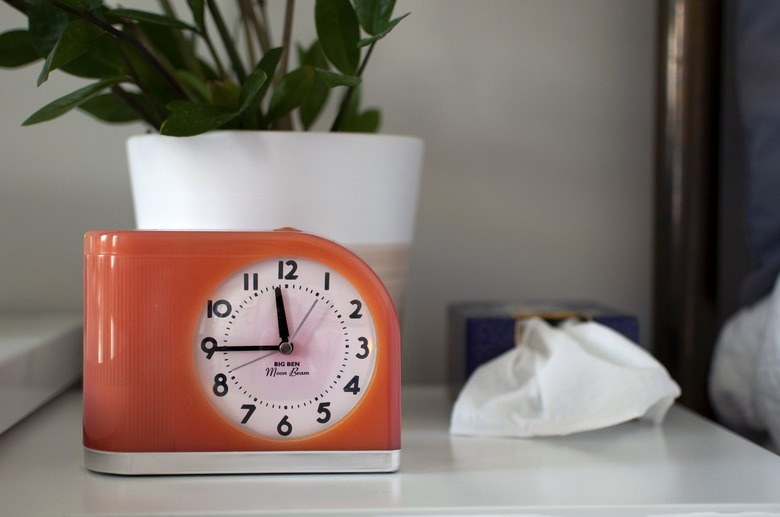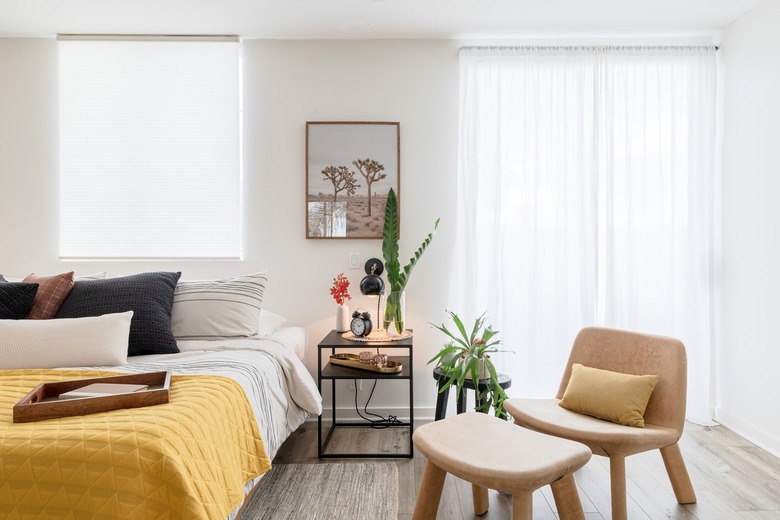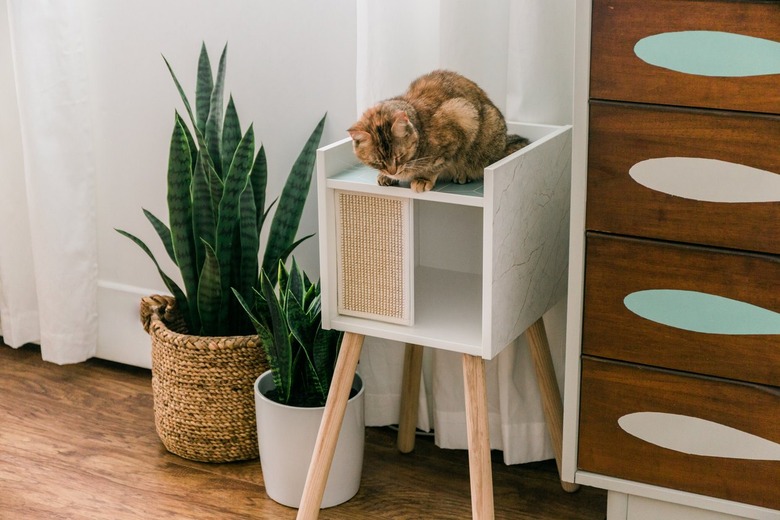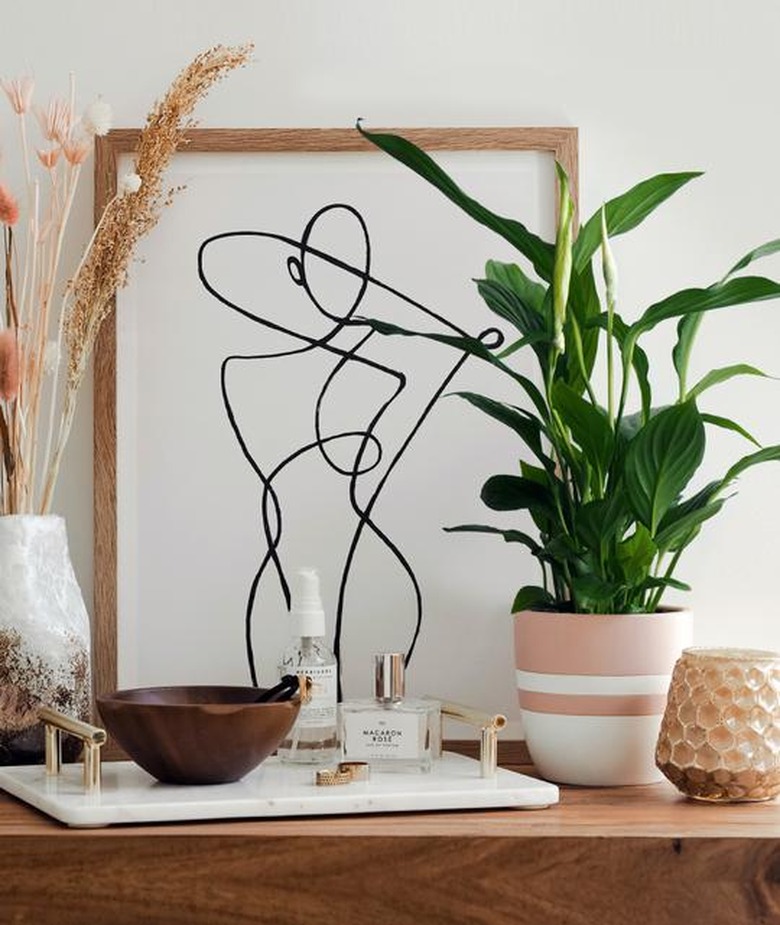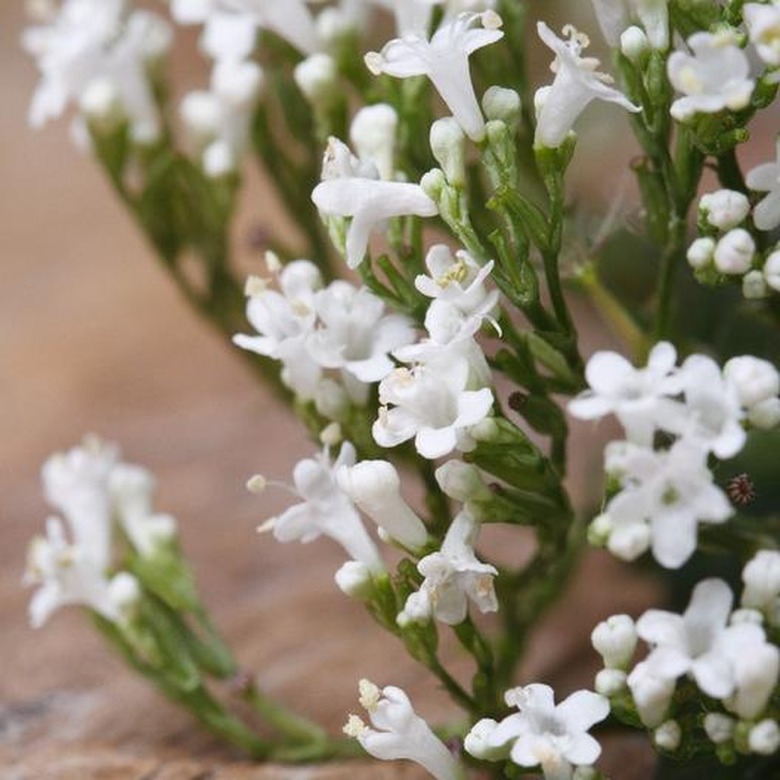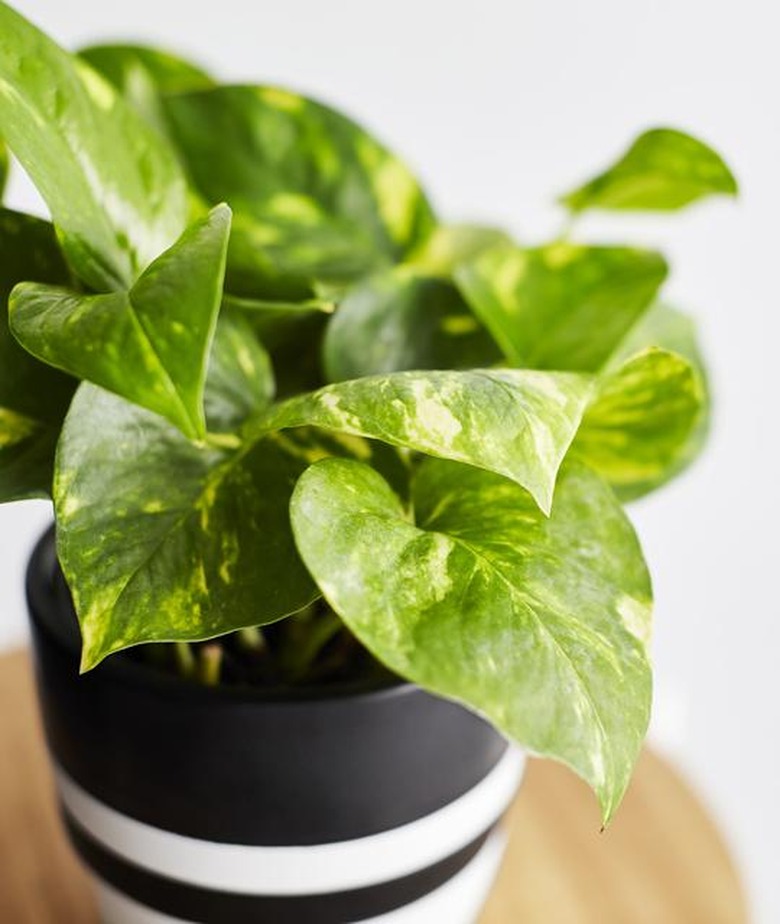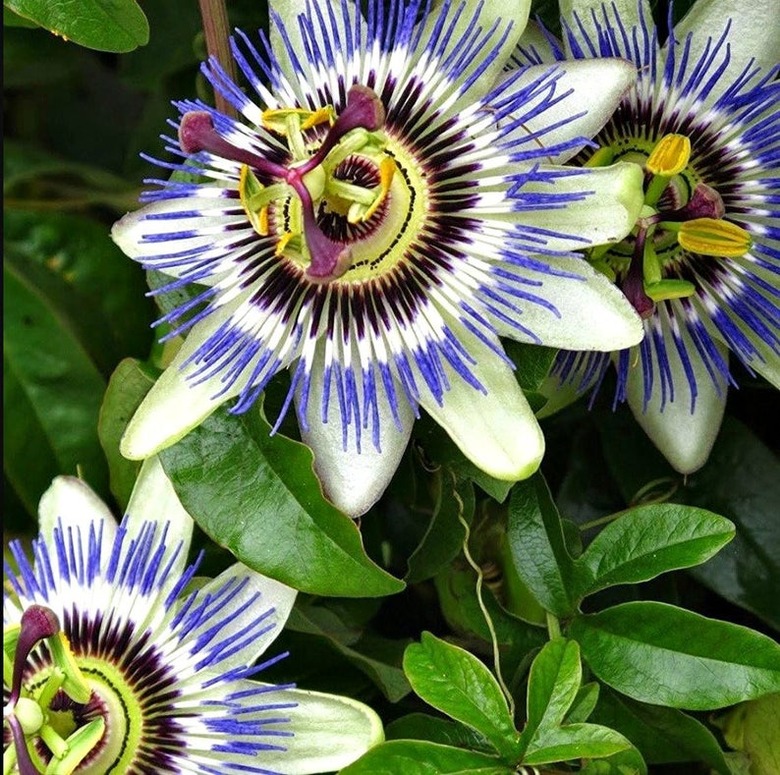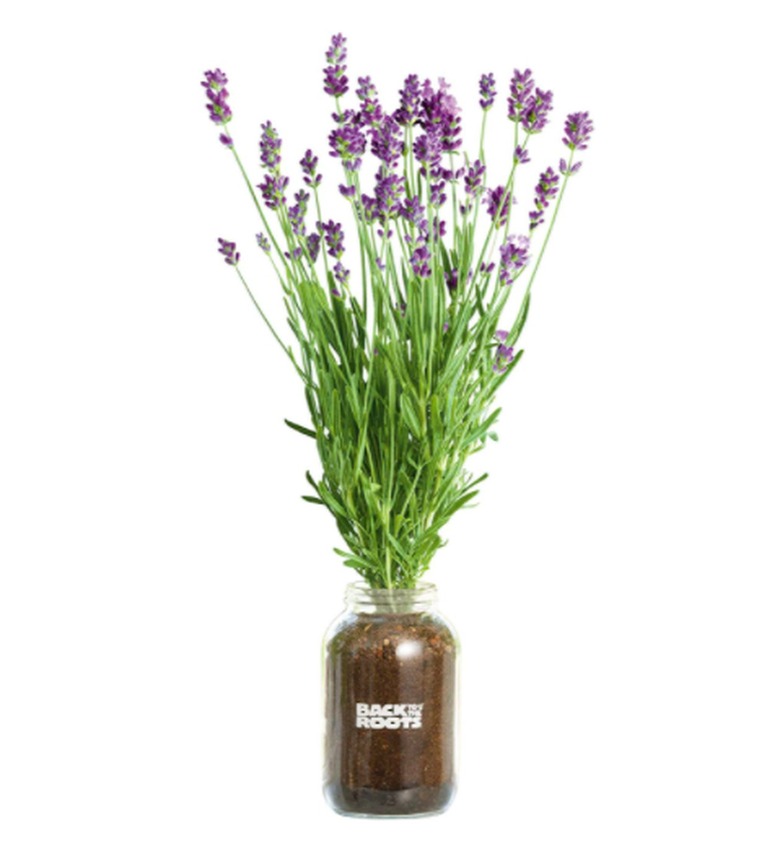These 6 Plants Will Help You Sleep (Yes, Really)
We may receive a commission on purchases made from links.
Scientists have confirmed that sound sleep beats out good nutrition and exercise as the number one element contributing to better mental health. But what will actually help you fall into dreamland? You can listen to relaxing podcasts, pick the perfect mattress, discover the best pillows for every type of sleeper, and experiment with wellness products (such as CBD, melatonin, and magnesium) that are engineered to help you get your zzz's.
But, have you heard that there are certain houseplants that can also help you sleep?
Tell Me More...
Tell Me More...
It's not an urban myth. Bringing certain plants into your bedroom can do wonders for your quality of sleep. Plants can purify the air by removing toxins. They are known to induce a state of calm, boost a sleeper's mood, and buffer out noises at night. And you don't have to take our word for it.
Scientists from agencies like NASA have determined that particular plants can absorb airborne toxins and purify the air in a bedroom. These toxins include formaldehyde, ammonia, xylene, and benzene — products that get a ride into your home through cleaning supplies and plastic materials. Plants also take in and store carbon dioxide and release the oxygen we humans need to survive.
Even your grandparents knew how certain plants can calm you and induce sleep, whether brewed into a tea (think chamomile) or through our sense of smell. Leafy greens are lovely, giving you a mental boost while counterbalancing stress and depression. Indoor plants can also serve as a noise "hedge," creating a more serene sleeping environment.
So which ones to pick for this sleep magic? There are more than a few plants ready to serve as a botanical lullaby. Here are our current favorites.
1. Snake Plant
1. Snake Plant
Officially known as a Sansevieria, don't let its sharp nicknames (snake plant, mother-in-law's tongue) deter you from getting this striking beauty. The snake plant has long, slenger, upright leaves, pointed on the top, and it is this shape, rather than any particularly bitter quality, that christened the plant.
The snake plant hails from hot regions in Africa, Asia, and Europe. And you can count in it to cleanse the air you will breathe all night long. According to NASA, if there is formaldehyde, benzene, xylene, toluene or trichloroethylene in your bedroom air, the snake plant will strip them out. It also converts carbon dioxide to oxygen at night.
CARING FOR SNAKE PLANT: You may be willing to go to great lengths to make a plant happy if it really cleans toxins from the air, but with the snake plant, there's no need. This amazing plant doesn't ask for much to thrive — it likes an occasional watering but does just fine on benign neglect in a low-light room. For heaven's sake, don't overwater this plant and make sure its soil drains easily.
Buy Now: The Sill Large Snake Laurentii, $75
2. Peace Lily
2. Peace Lily
One glimpse of a healthy peace lily (Spathiphyllium) and you may find yourself relaxing. Its emerald green leaves are large and beautiful, and the bright white flowers rise on stems above the foliage like angels. Native to tropical rainforests in South America, peace lilies are not in the lily clan at all, but part of the Araceae family. But this plant is a real workhorse when it comes to filtering toxins out of the air, according to NASA. They are also known to suppress mold spores and airborne microbes that can cause allergies and to add humidity to the air as they respire. So you are less likely to wake up coughing in the night.
CARING FOR PEACE LILIES: Peace lilies prefer light shade and are a top choice for rooms without much light. They like a stable, warm temperature, so keep them away from chilly drafts. Water once every week or 10 days and make sure the plants have well-draining soil.
Buy Now: Ansel & Lily Peace Lily, $42
3. Valerian
3. Valerian
Valerian (Valeriana officinalis) is a perennial herb. Its dried roots are used to make supplements ingested by people for the herb's sedative effects. They are said to have almost hypnotic properties that counter sleep disorders and insomnia. The dried herb is also used to make tea, taken before bedtime to enhance sleep. According to scientific research, the valerian blossom contains more than 150 chemicals that calm the central nervous system.
Valerian is a flowering plant and keeping a pot of it in your bedroom is reputed to improve sleep quality. Scientists report that sniffing the valerian flower (using the herb as "an odorant") results in a longer and better night's sleep.
CARING FOR VALERIAN: Like so many herbs, valerian requires excellent drainage, so be sure that the pot has drainage holes and the soil is gritty. When the saucer under the pot fills up, take the time to empty it. Valerian requires sunlight to grow. If you don't have a west or south-facing window in the bedroom, grow lights will do the trick. Water weekly.
4. Golden Pothos
4. Golden Pothos
Easy-care has a new name and that is "golden pothos." This waterfall of a plant is ideal for a bedroom since its cascading leaves need little sunlight or human intervention. Yet talk about an air purifier! In a recent study, scientists who put together the NASA clean air study found golden pothos (Epipremnum aureum) is one of the top plants at removing carbon monoxide and formaldehyde from the air so that you can breathe easily all night long.
So, golden pothos has it all. It adds romantic flair (and saves you shelf space) if you let its lush, yellow splotched leaves trail gracefully from a hanging basket. It's such a pretty plant that — clean air aside — you'll feel happy and relaxed having it in your room.
CARING FOR POTHOS: When we say easy-care, it's something of an understatement for golden pothos. This plant will accept almost any type of situation, from bright light to low light, weekly irrigation or monthly irrigation. It is almost impossible to do this plant wrong, another reason you can sleep easy.
Buy Now: Ansel & Ivy Devil's Ivy Pothos Plant, $42
5. Passion Flower
5. Passion Flower
The blossoms of the passion flower plant (Passiflora incarnata) are exotic and dramatic. Their rich hues are certain to brighten your spirits while the scent is calming and soothing. Passion flowers have been found to be useful in relieving anxiety and treating insomnia. In a research study, scientists found that the flower reduces anxiety better than the popular anti-anxiety medication Oxazepam. It fights insomnia by improving the levels of GABA in the brain.
CARING FOR PASSION FLOWER: Sunlight is important to passionflower houseplants. Give this plant the brightest window in the bedroom and consider a grow light as well. These are thirsty plants that need moist soil, especially during summer. A rich, fast-draining potting mix is perfect for this beauty.
Buy Now: Divine Alchemy Herbs Blue Passion Flower Potted Plant, $32.99
6. Lavender
6. Lavender
Who doesn't appreciate the soothing scent of lavender (Lavandula) in a warm bath or lotions? It seems especially lovely at the close of a stressful day. But did you know that this special plant, with its fragrant purple flowers, can also improve your sleep?
Some herbs must be ingested in order to provide health benefits. But the elegant lavender plant works its sleep-inducing magic through its smell. Scientists looking into the matter determined that just smelling lavender improved sleep quality. Although some of the studies involved aromatherapy with essential oils rather than live plants, there is no reason to think that a sweet-smelling lavender plant in the bedroom would not have similar results.
CARING FOR LAVENDER: Lavender is another Mediterranean plant that loves sun and needs less water than you might think. So find a sunny window sill in the bedroom or put in a grow light. Water your lavender plant only when the soil is quite dry, and don't repot it quickly. Lavender likes tight quarters.
Buy Now: Back to the Roots Organic Lavender, $24.95
References
- NCBI: Herbal Insomnia Medications that Target GABAergic Systems: A Review of the Psychopharmacological Evidence
- NCBI: The Sleep-Enhancing Effect of Valerian Inhalation
- Garden Guides: How to Grow Valerian as a Houseplant
- Tuck: 10 Plants that Help You Sleep
- Start Sleeping: The Best Plants to Help You Sleep
- Proflowers: Plants that Help You Sleep
- Medical News Today: Benefits of Passionflower for Insomnia
- University Health News: Lavender for Sleep
